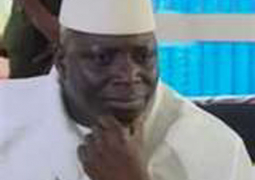The decision of the six-member constitutional court judges, all appointed by Wade and reportedly given a 150% salary increment last week, is no surprise to many Senegalese, most of whom see it as a political tactic by Wade to prolong his stay in power, despite his age.
As we said not long ago in these pages, it looks as if democracy as we know it is at a crossroads in Africa, because it is now endemic on the continent for incumbents to try one ruse or another to hang on to power.
As we indicated earlier on, the story of President Wade is both shocking and worrying.
Long before he became president, Wade had been a dominant opposition figure, who made both Leopold Sedar Senghore and Abdou Diouf have sleepless nights through his polemics; so much so that the Senegalese people decided to give him a chance in 2000.
But his declared ambition is a sad commentary on the integrity of the opposition in
It is as if when they are not in power, they posture themselves as angels and saints. But the moment they get into power, they act worse than their predecessors.
However, we urge President Abdoulaye Wade to reconsider his ambition on more counts than one.
We also believe that President Wade needs more advisers at this point in time than he has; he is one of the architects of NEPAD, a formula designed to liberate the continent from retrogressive forces.
Taking what many Senegalese people see as an unconstitutional step, such as going for a third term, is at variance with the spirit of NEPAD.
Additionally, he is a respected elder statesman on the continent, whose actions and utterances should be exemplary to much younger leaders.
If Wade is seen to be breaking a tenet of good governance, younger African leaders with authoritarian inclinations will simply go berserk, thereby plunging the continent deeper into squalor and misery.
Wade should also realise that
This is a distinction and heritage that Senegalese and democrats across the world cherish and want to see preserved.
President Wade would be wise to stand down than seek another term in office.
Even whereas the Senegalese constitutional court has state that he is eligible, we believe that Wade at the age of 85, should listen to the Senegalese people, who voted him into office and to whom power belongs.
African leaders must understand that they are only political appointees; that they are given a mandate to run the affairs of their various countries, and they must therefore not see or believe that those countries are their personal properties.
From the look of things, once elected into office, most African leaders tend to believe that only they can be trusted in running the affairs of their countries. This should never be the case.
Presidential succession in
The fact that African strongmen invariably become intoxicated by power has been the main cause of power-sharing deals in some countries on the continent.
Our leaders have to be faithful to their electoral promises, and keep faith with the people from whom they derive their mandate.
It is only in
“Man’s capacity for justice makes democracy possible, but man’s inclination to injustice makes democracy necessary”.
Reinhold Niebuhr
Read Other Articles In Article (Archive)



